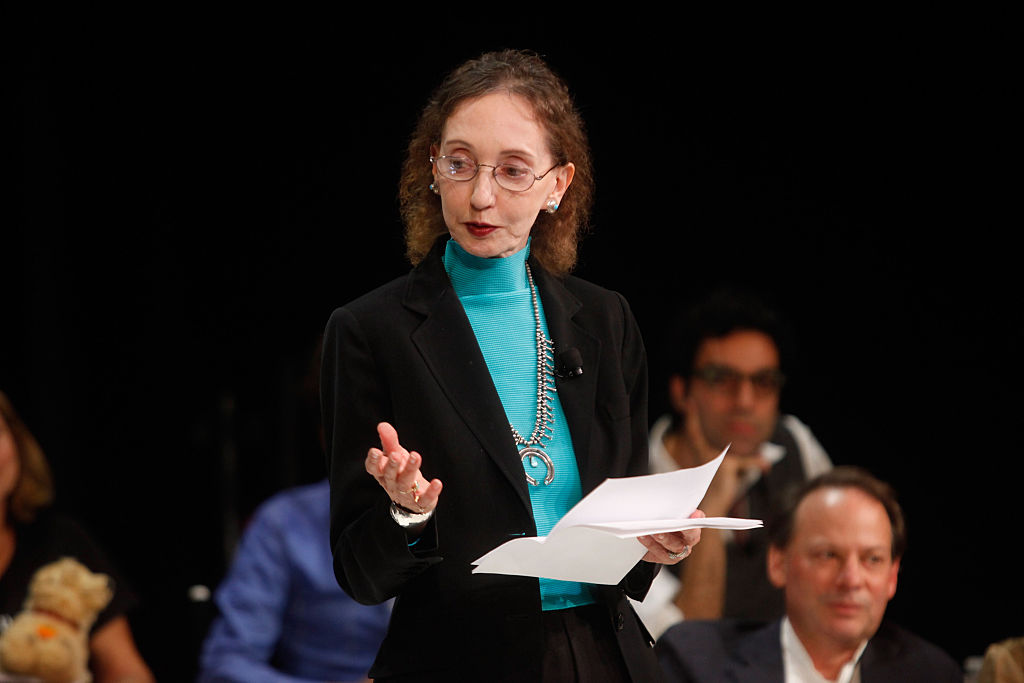‘The Routledge Companion to Biofiction’
Edited by Lucia Boldini, Laura Cernat, Alexandre Gefen and Michael Lackey
Routledge, 570 Pages
Biographical fiction has become both a popular and highly respected genre that has attracted writers of the first caliber, such as Hilary Mantel and Joyce Carol Oates, writing on figures as diverse as Thomas Cromwell and Marilyn Monroe. This collection of essays signals the canonization of a category of novels that until recently has rarely been regarded as commensurate with the greatest art.
Even a work as celebrated as Robert Penn Warren’s “All the King’s Men” seemed second-rate to William Faulkner. Why base a novel on Huey Long when it was the writer’s job to create original characters that did not owe any sort of fealty to life outside of a book that should stand on its own? Like the historical novel, which most great writers of Faulkner’s generation eschewed, biographical fiction, it was thought, hindered full and complete creativity.
Then there is the common plaintive question addressed to the biographical novelist: What am I supposed to believe? What is true, what is not? Reviewers of such books, unless they are themselves versed in the biography and history that a work of biographical fiction traverses, are also left wondering and often resort to praising or blaming the biographical novelist’s style.
The editors of “The Routledge Companion to Biofiction” are well aware of the difficulties of the genre, and begin their introduction acknowledging as much: “Biofiction is a perplexing and elusive literary form.” The sentence continues with an academic apparatus that may alienate some readers, yet what is valuable in this collection is that by showing the sheer diversity of views on the genre, its power and plentitude become strikingly apparent as a revelation of how fiction itself is developing across the world.
At the same time, as the editors argue, biographical novels can offer a critique of history and biography, of all writing that is constructed as a narrative. If biographical fiction is unsettling, it is because it defies categorization, the neat labeling of what is true and not true. The question of truth, however, should be applied to all forms of narrative. Historians and biographers, no less than novelists, shape how a story is told, and the very shaping of that story has a bearing on its veracity.
“The Routledge Companion to Biofiction” is divided into seven parts: “Histories of biofiction”; “Theoretical reflections on biofiction”; “Biofiction, national models and (transnational constructions)”; “Biofiction as political intervention”; “Biofictional case studies”; “Activating lives: early modern women”; and “Authorial reflections.”
General readers not inclined to be bothered with academic debates and how they have evolved will still find plenty to enjoy and to ponder if they have an avid interest in, say, Emily Dickinson, who is a favorite of biographical novelists, including Rose MacMurray (“Afternoons with Emily”); Jerome Charyn (“The Secret Life of Emily Dickinson”); and Nuala O’Connor (“Miss Emily”), to name just three of the seven novels listed in Robert Dion’s essay, “The Writer’s Life: From biography to biofiction.”
For those who want a broader view, check out accounts of biofiction in ancient Greece and Rome; how psychology is employed in the genre; counterfactual fictions (a sort of arguing against what happened in history); what is going on in Italy, France, Australia, and postcolonial fiction; and lots about Virginia Woolf and how her “poetics of biography” relate to biofiction. Jesus and Shakespeare also get their due, as well as various treatments of women over the ages.
Although the editors have made a valiant effort to be comprehensive for a genre that has become so popular, I wish they had paid more attention to contemporary writers such as Norman Lock, Paula McClain (who is not even mentioned), and Jerome Charyn (mentioned only once), who are reaching large audiences and making biofiction respectable and exciting.
All the same, the effort to encompass all the different strains of biofiction as they develop across continents, cultures, and history make “The Routledge Companion” an indispensable resource and an impressive contribution to an understanding of a genre that tests the boundaries of biography, fiction, and history, creating a kind of checks and balances effect that makes all the more vexing and fascinating the question: “What is true?.”
Mr. Rollyson writes about biofiction in “Reading Biography,” “Biography: A User’s Guide,” and in his forthcoming book, “Making the American Presidency: How Biographers Shape History.”
(Except for the headline, this story has not been edited by PostX News and is published from a syndicated feed.)

